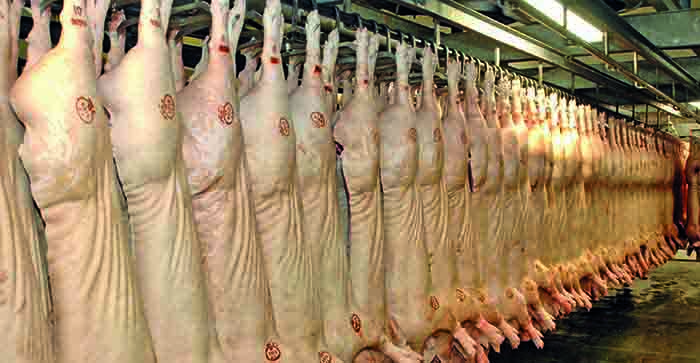A survey, conducted by the Sustainable Food Trust, of more than 1,300 farming and food businesses in the UK has revealed that local abattoirs are an essential service and two-thirds of respondents feel the lack of availability of abattoirs are impacting future business plans.
The survey results showed that 88% of participants believed their closest abattoir is either essential or important to the success of their business. Results also highlighted the many benefits of local establishments, including animal welfare, the local economy and the environment.
Small abattoirs are being closed at a rate of 10% per year, according to the Food Standards Agency, and this has left livestock farmers having to increase journey times to reach their nearest service. With the closure of many smaller abattoirs, those still open are increasingly busy. This has all forced some businesses to close or limit their operations. A number of respondents explained that their business was dependent on their local abattoir, one said: “If this one closed, we would lose our business.”
Island and remote businesses have been particularly affected. One farmer on Orkney said: “Since Orkney abattoir closed in 2018 the situation here is dire – most of the free-range rare breed pig farmers have closed down. The next nearest abattoir costs us over £250 just for the ferry taking a trailer that can hold max 20 sheep, then there is the 30-mile drive to the port and the 110 mile drive to Dingwall.”
Possible solutions were offered, and cooperative-owned abattoirs were an option for 64% of survey participants and 81% expressed an interest in mobile services, with 73% saying they would pay more for this option.
Megan Perry, head of policy and campaigns at the Sustainable Food Trust, said: “This survey highlights that a diverse network of abattoirs throughout the UK is vital to farms of all sizes and to the viability of local meat businesses. We welcomed the Government’s announcement of funding for the sector, earlier this year. However, for this fund to have the impact that is needed, it must be accessible, broad and with a long timeframe, and it must be implemented alongside work to address other issues including regulation, recruitment and waste disposal costs. We will work with the Abattoir Sector Group and Defra’s Small Abattoir Working Group in progressing solutions to these issues.”
Eleanor O’Brien, managing director at National Craft Butchers, said: “Alongside funding, the Government needs to implement flexibilities that already exist within regulation, specifically including the 5% rule, that will help smaller abattoirs to increase productivity, expand and thrive. Without this two-fold approach, the small abattoir sector will continue to stagnate, with severe consequences for farmers, animal welfare and supply chain diversity and resilience.”




